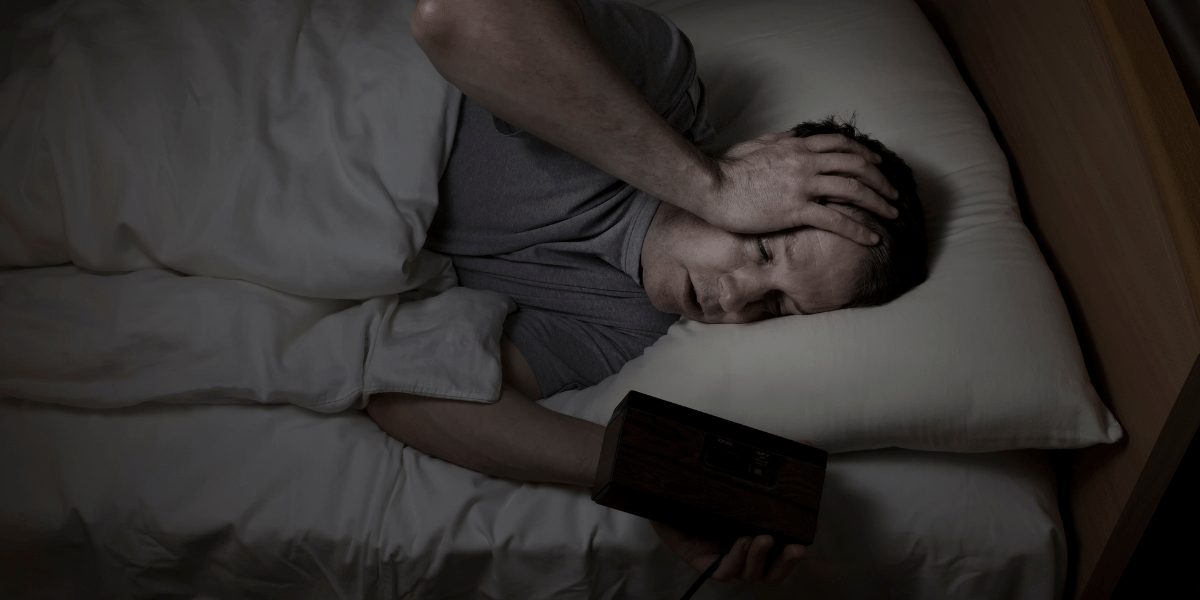Overlooked Causes of Sleep Disruption. Sleep is extremely important to our overall health. Without it we age faster, our brains shrink, we become irritable, have more accidents and make poor decisions. The risk of obesity, cancer, diabetes, stroke and heart disease increases with sleep deprivation and the likelihood of getting emotional, catching a cold or having a poor memory increase.
Our bodies repair during sleep, we make hormones that rejuvenate our minds and bodies, and our brains are washed free of toxins and debris. Sleep is necessary to reduce oxidative stress and improve mitochondrial function. Mitochondria provides energy to every cell of the body and their function improves with sleep. Reducing oxidative stress stops cell breakdown and improving energy allows the body to rejuvenate and repair.
Disruption of more than just sleep
There are many things that can cause sleep disruption such as hormone imbalances, changes in your circadian rhythm, blue light, alcohol, caffeine, stimulants, anxiety and many other things. However, there are some causes that tend to be overlooked.
 Pain or Movement Disorders
Pain or Movement Disorders
Pain and movement disorders can affect the quantity and/or quality of sleep. Unpleasant sensations, cramps, or involuntary movement can disrupt sleep. What is keeping you awake and how do you deal with it? Perhaps you have restless leg syndrome, periodic limb movement disorder, arthritis, fibromyalgia, chronic fatigue syndrome, or peripheral neuropathy. Addressing your issues is imperative if you are to get the benefits of restorative, rejuvenating sleep. We will explore some strategies to address these overlooked issues.
When you try to relax in the evening or sleep at night, do you ever have unpleasant, restless feelings in your legs that can be relieved by walking or movement?
If your answer to this is yes, you may have restless legs syndrome. If no, there may be other conditions that impair the quantity or quality of your sleep. Let’s explore the common conditions and some strategies to address the underlying cause.
Restless Leg Syndrome
Restless legs syndrome (RLS) is a common neurological movement disorder, characterized by an uncontrollable urge to move the legs combined with an uncomfortable sensation in the legs.
The majority of cases have an unknown origin, it is more common in women than men and may have a genetic component and increases with age.
RLS can occur as a result of certain conditions such as iron deficiency anemia, pregnancy and end-stage renal disease, vitamin B12/folate deficiency, peripheral neuropathy (associated with diabetes mellitus), rheumatoid arthritis, spinal disorders such as spinal nerve root irritation, Parkinson’s disease, fibromyalgia, and a few others. This syndrome is thought to be related to dopamine and iron dysfunction in the brain.
Since there is no test to determine if you have RLS, the International RLS Study Group stated the diagnosis can be made if all of the following five criteria are met.
- A need to move the legs usually accompanied or caused by uncomfortable, unpleasant sensations in the legs.
- Symptoms are exclusively present or worsen during times of inactivity/rest.
- Partial or total relief of symptoms by movement, such as walking or stretching, at least as long as the activity continues.
- Symptoms are generally worse or exclusively occur in the evening or during the night.
- The occurrence of the first four essential criteria must not be solely accounted for as symptoms primary to another medical or a behavioral condition.
How to Distinguish RLS from other Disorders
Periodic Leg Movement Disorder
- Characterized by muscle jerks that occur usually during sleep and only occasionally when the person is awake.
- The person sleeping in bed with the patient is able to sleep in spite of the leg movements as long as the leg movements are not too brisk.
- There is no sensory component.
- The quality of sleep is affected. RLS affects the quantity of sleep.
Fibromyalgia/Chronic Fatigue Syndrome
- Pain with fibromyalgia is generalized and is NOT associated with the urge to move.
- It DOES NOT change with movement or rest.
- Poor sleep hygiene may contribute to fibromyalgia and CFS.
- The symptoms of fibromyalgia and CFS frequently resolve with treatment of RLS.
Arthritis
- Pain from arthritis may increase in the evening like RLS.
- Pain centered in the joints rather than throughout the leg.
- Arthritis pain IS worse with activity and better with rest.
Peripheral Neuropathy
- With peripheral neuropathy there is NOT a sensation to move.
- The symptoms DO NOT vary with activity or rest.
- Symptoms with neuropathy DO NOT get worse in the evening or nighttime like RLS.
- Patients with RLS can also have a neuropathy.
Test to Determine Disruption Cause
- Get a complete blood count to determine if you have anemia
- Test for ferritin which represents iron stores. The level must be above 50 ug/L
- Check B12, folate, blood sugar, thyroid function, hemoglobin A1C levels and micronutrients (a complete micronutrient test is available through a functional medicine doctor)
- Review medications that may make symptoms worse (antidepressants, neuroleptics, beta-blockers, dopamine antagonists, anti-nausea drugs, antihistamines, anticonvulsants, L-thyroxine, lithium).
- Using the above criteria, have a discussion with your doctor. You may have more than one issue.
Strategies to Relieve the Underlying Causes of These Conditions
Reduce Inflammation
- Inflammation can make any condition worse. Eat an anti-inflammatory diet with less, sugar, grains, saturated fats, meats, dairy, hydrogenated oil and trans-fat.
- Remove foods and toxins you are sensitive to. Our signature detox and elimination diet can help you diagnose and treat food sensitivities as well as heal the gut.
- Increase Omega 3 fatty acids by eating more fish, olive, avocado, nuts seeds and any of their oils and take a good quality EPA/DHA fish oil
- Heal the gut by removing foods you may be sensitive to, replacing or stimulating digestive enzymes so you absorb more nutrients, replenishing the gut microbiome with a quality probiotic, and repairing the gut with L glutamine, butyrate and a nutrient rich diet.
These measures may reduce symptoms of arthritis, peripheral neuropathy, fibromyalgia, chronic fatigue and many other chronic conditions.
Replete Nutrients
- If iron deficient, take a chelated iron supplement with vitamin C
- Vitamins C and E alone and in combination are likely effective in the treatment of RLS symptoms and can reduce oxidative stress which can make any condition worse.
- Magnesium can relieve muscle cramps and tension and alleviate symptoms of chronic fatigue and fibromyalgia. Try magnesium malate or magnesium threonate.
- B6 and B12 are important for treating peripheral neuropathy as well as conditions associated with fatigue.
- Vitamins A, C, D, E, folate, niacin, magnesium, calcium, potassium and zinc must be optimal, get a micronutrient test to determine your levels.
Improve Lifestyle
Lifestyle factors can make many situations better or worse. Sleep repairs and rejuvenates us. Treating the factors that disrupt sleep or aggravate a condition can work wonders.
- Avoid high intake of caffeine or alcohol before bedtime
- Practice good sleep hygiene (e.g. sleep in a quiet, comfortable, cool environment, and keep regular sleep and wake hours).
- Exercise not too much or too little. Exercise improves circulation and delivery of nutrients and can help most of the conditions as well as improve sleep.
- Meditation, Tai chi, Qigong and Yoga have been shown to mind-body therapies can be effective in treating insomnia and improving sleep quality.
- To cope with the RLS symptoms, walking and stretching, massaging the affected limbs, bathing in hot or cold water, relaxation exercises (biofeedback or yoga) and distracting the mind can be helpful. These may also help many of the other conditions.
There are many factors that can cause or aggravate these conditions as well as interfere with sleep. These strategies can improve overall health but are not a substitute for a medical work up and consultation. Talk to your doctor and get a functional medicine evaluation to determine some of the underlying causes of sleep disturbance or the aforementioned conditions. Your overall quality of life can improve with a good night’s sleep.





She is a recognized and award-winning holistic, functional, integrative and anti-aging healthcare practitioner, speaker and author, and has been featured in ABC News, Forbes, WOR Radio and many media outlets to spread the word that you can live younger and healthier at any age.